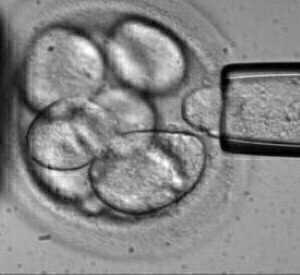News
Secrets of Malaria Break Out Unlocked
Oct 23 2015
Researchers at the Francis Crick Institute in London have discovered that Malarial parasites need a protein called MSP1 to burst from red blood cells to infect new cells – thus solving the long-held parasite escape puzzle while revealing a new anti-malarial drug target.
Studies led by Professor Mike Blackman altered the genes of live parasites and then, using video microscopy, watched their attempts to break out of red blood cells. The team found parasites without the MSP1 protein on their surface cannot attach to the inside rim of the red blood cell; the parasites are trapped.
They also uncovered the exact mechanism. MSP1 needs to be altered by an enzyme called SUB1 to stick to the red blood cell. Without the SUB1 enzyme the MSP1 protein cannot attach to the red cell membrane and ultimately the parasite can't escape.
Professor Blackman said: "Malaria causes immense suffering and mortality across much of the developing world. New types of antimalarial drugs are urgently needed in the face of widespread resistance to most available drugs. Our work confirms the SUB1 enzyme in the malaria parasite is an important potential target."
Time lapse video recorded by Blackman's team shows malarial parasites with MSP1 breaking a hole in the red blood cell. The weakened cell wall then folds open like an envelope and the parasites rush out to infect more red blood cells. This destruction creates the fatal fever and anaemia typical of malaria.
Professor Blackman concludes: "Collectively, our findings change the way we think about how the malaria parasite escapes cells. We now know that mechanical forces exerted from the inside of the infected red blood cells are crucial. Interactions between MSP1 on the parasite and a protein called spectrin in the red blood cell wall ruptures the cell membrane and the parasite escapes."
The work involved collaborators from the Francis Crick Institute, the University of Heidelberg, the Wellcome Trust Sanger Institute and Birkbeck College London.
“Processing of Plasmodium falciparum merozoite surface protein MSP1 activates a spectrin-binding function enabling parasite egress from RCB’s is published in Cell Host & Microbe, Oct 14.
Digital Edition
Lab Asia Dec 2025
December 2025
Chromatography Articles- Cutting-edge sample preparation tools help laboratories to stay ahead of the curveMass Spectrometry & Spectroscopy Articles- Unlocking the complexity of metabolomics: Pushi...
View all digital editions
Events
Jan 21 2026 Tokyo, Japan
Jan 28 2026 Tokyo, Japan
Jan 29 2026 New Delhi, India
Feb 07 2026 Boston, MA, USA
Asia Pharma Expo/Asia Lab Expo
Feb 12 2026 Dhaka, Bangladesh




















